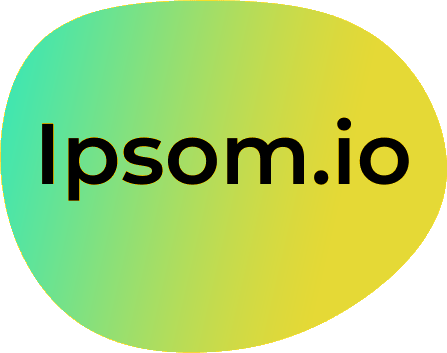CRM automation refers to the use of technology to streamline and enhance customer relationship management processes. By automating various marketing, sales, and customer service functions, organizations can significantly boost their productivity, improve customer experiences, and drive growth.
Key Takeaways
- Definition: CRM automation involves automating essential CRM functions to manage customer interactions effectively.
- Benefits: Up to 300% increase in lead conversion rates and a 40% boost in purchase value through CRM automation.
- Key Features: Essential functions include contact management, lead management, email marketing, and data analytics.
- Best Practices: Choose user-friendly platforms, define automation processes, and provide adequate training.
Discover how you can enhance your customer relationship management at ipsom.io.
Understanding CRM Automation
CRM automation refers to using technology to automate essential tasks within a Customer Relationship Management platform. The primary objective is to manage customer interactions more effectively. This optimization is especially important for sales-driven organizations as it streamlines workflows, allowing teams to focus on growth and building strong customer relationships.
What is CRM Automation?
CRM automation involves automating various functions like contact management, lead tracking, and data processing. By doing this, organizations enhance their ability to respond quickly to customer needs and manage interactions more efficiently. This leads to improved productivity and ensures that valuable time is spent on strategic activities rather than repetitive tasks.
Key Benefits of CRM Automation
The benefits of CRM automation are significant. It leads to an increase in productivity by eliminating manual data entry, allowing teams to devote more time to relationship building. Automated processes also enhance lead generation, resulting in higher qualification rates for leads.
Increased focus on lead prioritization helps organizations achieve improved sales conversions. The automation of customer interactions enhances the customer experience, leading to timely resolutions and personalized communication. This personalized approach ultimately boosts customer retention, significantly contributing to long-term profitability.
By integrating CRM automation into their operations, businesses can unlock greater efficiency and effectiveness in managing customer relationships.
Core Functions of CRM Automation
The core functions of CRM automation enable organizations to manage customer relationships efficiently. By automating these vital tasks, businesses can enhance productivity and drive growth. Understanding these functions is key to leveraging CRM for success.
Essential CRM Features
-
Contact Management: This feature helps in maintaining accurate, up-to-date customer records. It organizes essential information, making it easy to access and use for personalized communications.
-
Lead Management: Tracking and scoring leads is crucial. This function maximizes conversion potential by identifying high-quality leads and prioritizing them for follow-up.
-
Email Marketing & Automation: Automated email marketing campaigns save time and enhance engagement. Personalized emails nurture leads and keep existing customers informed and satisfied.
-
Integration Capabilities: Ensuring the CRM integrates with other applications promotes collaboration. This feature enhances overall functionality and provides a streamlined workflow.
-
Analytics and Reporting: Utilizing data for informed decision-making is vital. This function helps businesses analyze customer interactions, measure performance, and refine strategies accordingly.
Example Applications Across Industries
-
Healthcare: Automates appointment scheduling and patient reminders, improving care quality and efficiency.
-
Ecommerce: Streamlines data management for better customer segmentation and nurturing, driving sales.
-
Fitness Industry: Reduces administrative tasks, increasing focus on customer satisfaction and retention.
-
Legal Field: Automates time tracking and client communications, enhancing service delivery and efficiency.
-
Retail: Captures real-time customer interactions, facilitating targeted marketing campaigns for improved engagement.
Understanding these core functions positions businesses to effectively implement CRM automation and achieve their goals.
Implementing CRM Automation
Implementing CRM automation effectively is crucial for maximizing its benefits. Following best practices will help ensure a smooth integration and successful usage of the system.
Best Practices for Successful Implementation
-
User-Friendly Platform: Choose a CRM that boasts an intuitive interface. This encourages adoption among team members and improves engagement.
-
Customization: Tailor features within the CRM to align with your specific workflows and business processes. This personal touch enhances usability.
-
Mobile Compatibility: Ensure that the CRM system is accessible on various devices. A mobile-friendly platform allows teams to manage customer relationships on the go.
-
Data Integrity: Define standard processes to maintain accurate data. Clear data input processes prevent errors and ensure reliable information.
-
Training: Provide comprehensive training for all users. Understanding the CRM's capabilities can significantly improve its effectiveness and user satisfaction.
Three Key Automation Areas for Sales Teams
-
Manual Data Entry: Eliminate time-consuming repetitive input tasks by automating data entry. This allows the sales team to focus on what matters—closing deals.
-
Relationship Insights: Automatically gather insights on customer interactions. This information speeds up deal processes and helps in personalizing communication.
-
Data Enrichment: Ensure consistent access to accurate customer data through automated processes. This enhances the quality of insights used in decision-making.
Successful implementation of CRM automation will lead to improved workflows, increased productivity, and better customer relationships. Get started on your path to streamlined CRM automation today with ipsom.io.
Selecting the Right CRM Automation Tool
Choosing the right CRM automation tool is crucial for maximizing your business effectiveness. A suitable tool will enhance your customer interactions and streamline processes. Here are important features to consider when making your selection.
Features to Consider
- Customer and Sales Management Capabilities: Ensure the tool can effectively handle customer relationships and track sales processes.
- User-Friendly Design: A simple and intuitive interface makes it easier for all employees to adopt the system.
- Robust Reporting Features: Look for tools that offer in-depth analytics for informed decision-making.
- Customization Options: The ability to tailor the CRM to fit your specific business workflows is vital.
- Automation and Integration Capabilities: Effective automation should work seamlessly with other applications for optimized workflows.
Popular CRM Automation Platforms
Explore leading cloud-based CRM solutions such as Salesforce, HubSpot, Zoho, and FreshSales. Each platform offers unique functionalities and benefits tailored for organizations of different sizes. Evaluating these options will help identify the best fit for your business needs.
Selecting the right CRM automation tool not only enhances efficiency but also drives growth and improves customer satisfaction.
Analyzing the Impact of CRM Automation
Analyzing the impact of CRM automation is essential for understanding its effectiveness in enhancing business processes. This involves monitoring key metrics and adapting strategies based on performance data.
Monitoring and Measurement
To evaluate the effectiveness of CRM automation, focus on Key Performance Indicators (KPIs). These metrics provide insight into areas such as lead conversion rates, customer satisfaction scores, and overall sales growth. Regularly reviewing these KPIs helps identify what works and what needs improvement.
Continuous adjustment and iteration of CRM strategies based on performance data ensure that businesses can adapt to changing needs and maintain a competitive edge. This proactive approach fosters an environment of growth, ensuring that objectives are consistently met.
Future Trends in CRM Automation
The future of CRM automation is exciting. AI integration is set to play a significant role, providing deeper insights and streamlining automation processes. This technology enables more informed decision-making and enhances customer experiences.
Another emerging trend is the shift towards customer-centric approaches. Businesses are focusing on tailored experiences based on customer behavior and preferences. This personalized strategy drives engagement, satisfaction, and ultimately, customer loyalty.
Embracing these trends will position organizations to leverage CRM automation effectively, ensuring robust growth and a superior customer experience.
FAQ
What is CRM automation and what are its core benefits?
CRM automation streamlines customer relationship management processes using technology. It automates tasks such as contact management, lead management, and email marketing. The core benefits include increased productivity, improved sales conversions, and enhanced customer experiences.
Which industries benefit most from CRM automation?
Many industries benefit from CRM automation, including healthcare for appointment management, ecommerce for customer segmentation, fitness for reducing administrative tasks, and legal for efficient client communication. Each industry uses automation to enhance customer relations and internal processes.
How do I choose the right CRM automation tool for my business?
To choose the right CRM tool, consider features like user-friendliness, customization options, and integration capabilities. It's essential to select a platform that aligns with your business needs and enhances productivity.
What are essential features to look for in a CRM platform?
Essential features include contact management, lead tracking, analytics, and email marketing capabilities. Look for robust reporting features and options for integration with other tools to streamline workflows.
How can CRM automation improve my marketing and sales processes?
CRM automation improves marketing and sales by ensuring timely follow-ups, segmenting audiences for targeted campaigns, and providing insights into customer behaviors. It enhances efficiency, leading to higher conversion rates and better customer satisfaction.
What is the typical ROI on investing in CRM automation?
The typical ROI on CRM automation can be substantial, with companies experiencing increased lead conversion rates of up to 300% and a 40% boost in purchase value. The return often outweighs initial investment costs.
How do I implement CRM automation best practices in my organization?
Implement best practices by choosing a user-friendly platform, customizing it to fit your workflows, and ensuring data integrity. Providing comprehensive staff training is crucial for maximizing the tool's effectiveness.
What challenges can arise during CRM automation implementation?
Common challenges include resistance to change from staff, difficulties in data migration, and ensuring system integration with existing tools. Addressing these challenges upfront can lead to a smoother implementation process.
How important is training for effective use of CRM systems?
Training is critical for effective CRM use. Comprehensive training ensures that staff can utilize all features, understand workflows, and adapt to new processes, maximizing the system’s potential and benefits for the organization.




